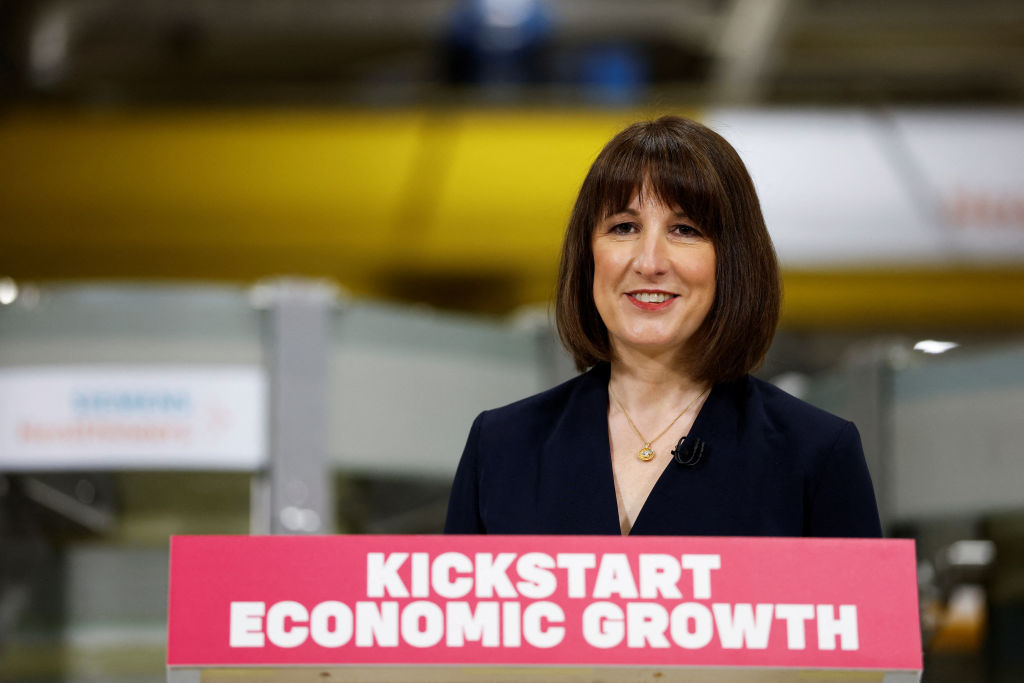Has Rachel Reeves got her growth? Today’s speech from the Chancellor in Oxfordshire was not this government’s first attempt to pivot towards a more business-friendly, growth-generating narrative. But it was its best effort yet.
Starting with the highlights. Reeves threw her unabashed support behind a third runway at Heathrow, insisting that the expansion was ‘badly needed’ and that the case had never been stronger for boosting trade; the airport ‘connects us to emerging markets all over the world, opening up new opportunities for growth’.
Let’s not get carried away
She called on proposals to be submitted by the summer, to start a process that would ensure the fastest and best-value action was taken to get more planes on and off the ground. The announcement came just after her commitment to create ‘Europe’s Silicon Valley’ by better connecting and developing Oxford and Cambridge. She promised expanded train lines, a housing boom and a new ‘innovation hub’ attached to Cambridge University.
Yes, this is still just rhetoric. Theresa May gave the green light to the runway in 2018, after years of David Cameron insisting it wouldn’t go ahead. Boris Johnson was in the Cameron camp. After 14 years in power, the verdict was still out, making the project dead by default. And yes, we’re heard plenty of this before. Rolling back red tape, encouraging more nimble regulation, flattering businesses and entrepreneurs as the ‘first and foremost’ growth generators for the country. Labour’s plans to properly connect the south east are a repackaged ‘Oxford-Cambridge Arc’ designed by Rishi Sunak and Jeremy Hunt, which sought to create the same kind of growth gain.
One could easily make the case that nothing has – and nothing will – change. That’s where the evidence in recent history points to, anyway. There is a decent chance that plans to build this third runway will ebb and flow like they did under the Tories – that when lawyers and activists get involved, this all fades into the blur of ‘pro-growth’ speeches that made all the right signals but didn’t deliver.
Could this be different? The optimist might point to the timing of these announcements: that a recently-elected government with a massive majority is making these pledges six months into this parliament. This means there is time to deliver. Infighting within Labour can’t be avoided (Reeves’s instructions today to scale back environmental regulation and to ‘stop worrying about the bats and the newts’ were surely designed to bring on this fight). But the position of the government is being made clear from the outset. Plans for expansion, at airports and across cities, is not going to be a late add-on proposition from the government (or a new prime minister). It’s going to be the ambition from the outset.
But let’s not get carried away. The Chancellor’s decision to double-down on the messages in her Mais lecture raises serious questions about how the government thinks growth is really generated. The renewed emphasis on government safety nets for business and taxpayer ‘investment’ suggests a top-down approach that is more likely to weigh the economy down than it is to see it flourish. The repeated promotion of the National Wealth Fund as something that generates wealth – it doesn’t, it’s an investment vehicle for government spending – is not just a counterintuitive signal to business: it also raises questions about which path the Chancellor actually plans to take. Indeed, the long list of regional projects the Chancellor announced today – a new transport system in West Yorkshire, better water infrastructure in Cambridgeshire and Oxfordshire – don’t really paint the picture of a free and unleashed economy. Rather, it illustrates a heavily centralised planning system – one which continues to hold back growth across the UK, and Labour has yet to fundamentally reform.
The party needs something to change. The rock-bottom growth figures that have been announced since last summer could see Britain teetering on the wrong side of a recession if the country proves unlucky once again. Reeves emphasised today that this was not an inevitability. ‘Low growth is not our destiny’, she said, ‘but growth will not come without a fight.’ That’s putting it gently: the battle with her own party and countless anti-growth groups begins now. It’s a battle she can’t afford to lose.
Join our Coffee House Shots panel, alongside special guests The Rt Hon Robert Jenrick MP and Jonathan Ashworth, at Coffee House Shots Live: A look to the year ahead on Wednesday 26 February. Book your tickets here.








Comments